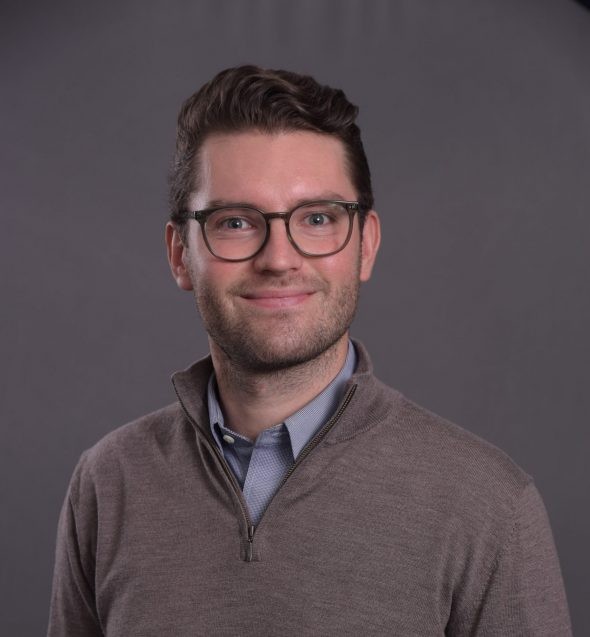Student Spotlight: Shifting Gears From Mitigation to Prevention
After he graduates from the Master of Science in Sustainability Science program in the spring, Tyler Zorn hopes to work in a sustainability-driven climate technology firm.

Tyler Zorn was already working in environmental consulting firms before he enrolled in the Master of Science in Sustainability Science (SUSCI) program at Columbia. But even while he found his job worthwhile and necessary, Zorn had a realization: He wanted to focus on preventing environmental degradation rather than stepping in to deal with the aftermath.
As Zorn prepares to graduate from the SUSCI program in the spring, he plans to use the tools and experience gained from his time at Columbia to achieve his aim of working for a climate technology startup that centers sustainability to accomplish ambitious carbon removal goals. In the Q&A below, Zorn discusses his highlights from the SUSCI program and how he hopes to integrate them into his future career.
What drew you to the SUSCI program?
While my passions and strengths lie within the environmental sector, I recognized that additional knowledge in sustainability science would catalyze my career progression. During my previous work experience, I was in a reactive industry dealing with the remediation of redevelopment sites. While the work was rewarding, the need for environmental mitigation could have been avoided if contamination was prevented from the start. I realized that even though negative impacts have already affected the environment, I truly aspire to be on the proactive side of sustainability while it is still possible. The prospect of learning the use of cutting-edge scientific methods and instruments was highly appealing. I wanted to acquire tools in the classroom that I could then apply towards conservation outside of it. The scientific foundation, sustainability motivation, collaborative efforts and developmental opportunities made this program the clear choice for me.
What are some highlights from your time in SUSCI?
There have been several highlights since joining the program, but one that sticks out is the Annual Sustainability Symposium this past April presented by the Columbia University Sustainability Management Student Association. It was a great experience to gain insight from chief sustainability officers, other executive level professionals of Fortune 500 companies and founders of climate technology startups who are trailblazing in the sustainability industry. Being able to attend guest lectures, Q&A sessions and breakout networking events like these is invaluable.
What are some of your favorite courses so far?
It is hard to pick just a few, but I have really enjoyed “Observing and Understanding Sea-Level Change” with James Davis, “Monitoring and Analysis of Marine and Estuary Systems” with Braddock Linsley, “Predicting the Effects of Climate Change on Global Forests” with Brendan Buckley and “Carbon Capture, Utilization and Storage” with David Goldberg.
Do you have any advice for current or incoming students?
The program provides the opportunity to take both SUSCI courses and pre-approved non-SUSCI courses. This interdisciplinary collaboration is indicative of what it takes for sustainability to be effective. I recommend that students take advantage of this broad array of course offerings to not only to gain knowledge from a wide range of professors but also to expand their network of peers from different backgrounds.
What are some of your career aspirations? How has being a part of the SUSCI program affected those aspirations?
After graduating from this program, I aspire to gain a position at a climate technology startup. While I am still deciding exactly what technology excites me the most and which can have a truly positive sustainability impact, the SUSCI program has continued to provide me with insight into what these technologies look like. Whether it has been listening to class presentations about a newly funded company, reading academic articles about research done to advance a certain innovation or writing a research paper on how future climate projections will require a specific sustainability technology, this program helps me cast a wide net to see what is available now and what is on the horizon of this evolving field.
We know you as a dedicated student, what are you up to outside of school and work?
This October, I participated in the Bank of America Chicago Marathon, fundraising for Erika’s Lighthouse, a nonprofit dedicated to educating and raising awareness about adolescent depression, encouraging good mental health and breaking down the stigma surrounding mental health issues. I also participated in the TCS New York City Marathon in November 2022 fundraising for The V Foundation for Cancer Research. These have been quite rewarding (and difficult!) experiences.
The Master of Science in Sustainability Science program is offered by the School of Professional Studies in partnership with the Columbia Climate School.
